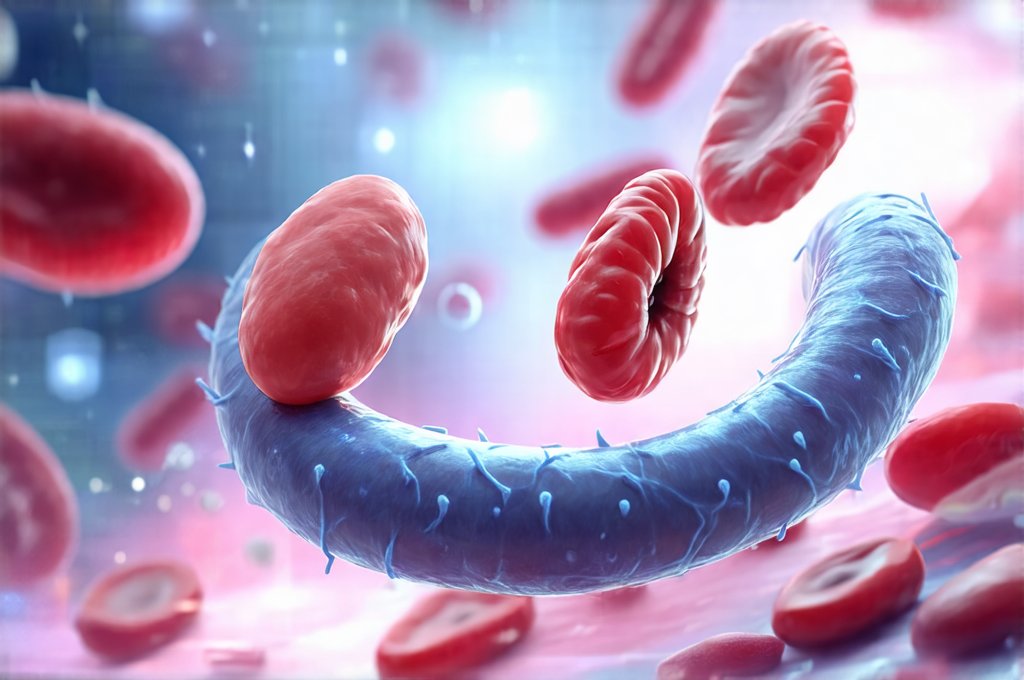Anemia, a condition characterized by a deficiency in red blood cells or hemoglobin, impacts millions worldwide, leading to fatigue, weakness, and shortness of breath. While often addressed through various treatments – ranging from dietary changes and supplements to more intensive medical interventions – it’s less commonly understood that these very treatments can sometimes trigger digestive distress. This isn’t necessarily an indication of a worsening condition, but rather a potential side effect stemming from the methods used to correct the anemia itself. Understanding this interplay between treatment and gastrointestinal discomfort is crucial for individuals managing anemia and allows for proactive communication with healthcare providers.
The digestive system is incredibly sensitive, responding to changes in diet, medication, and even stress levels. Treatments for anemia frequently introduce new elements into this delicate balance – iron supplements are a prime example, but vitamin B12 injections, erythropoiesis-stimulating agents (ESAs), and dietary modifications can all exert influence. These influences aren’t always negative; however, recognizing the potential for digestive upset allows patients to better navigate their treatment plans and minimize discomfort. This article will explore how different anemia treatments can cause digestive issues, what mechanisms are at play, and strategies for mitigating these side effects.
Iron Supplementation & Digestive Issues
Iron deficiency is arguably the most common cause of anemia globally, leading to widespread use of iron supplements as a primary treatment. However, iron itself is notorious for causing gastrointestinal disturbances. This isn’t surprising; the digestive system wasn’t necessarily designed to process large doses of supplemental iron in the way it processes smaller amounts found naturally in food. The type of iron supplement also plays a significant role in the likelihood and severity of these effects. Ferrous sulfate, commonly prescribed due to its cost-effectiveness, is frequently associated with more pronounced side effects than ferrous gluconate or ferrous fumarate.
The digestive problems linked to iron supplementation are diverse and can range from mild annoyances to debilitating symptoms. These include: – Nausea – Vomiting – Constipation – often the most prevalent complaint – Diarrhea – Abdominal cramping – Bloating – Heartburn These effects aren’t merely a matter of discomfort; they can significantly impact adherence to treatment, leading patients to discontinue iron supplementation before achieving optimal hemoglobin levels. The mechanism behind these issues is multifaceted. Iron isn’t easily absorbed in the digestive tract and requires an acidic environment for effective uptake. This process generates free radicals which can irritate the gastrointestinal lining. Moreover, unabsorbed iron acts as a catalyst for oxidative stress within the gut.
Strategies to minimize iron-related digestive distress include: taking iron supplements with food (though this can reduce absorption – discuss with your doctor), starting with a low dose and gradually increasing it, switching to a different form of iron supplement (again, under medical guidance), and ensuring adequate hydration. Some individuals find success by dividing their daily dosage into smaller increments taken throughout the day. It’s also worth noting that certain foods can hinder iron absorption (like tea and coffee) while others enhance it (vitamin C-rich foods). Open communication with your healthcare provider is paramount to finding a tolerable regimen. Can dehydration cause digestive discomfort can also exacerbate these issues, so staying hydrated is key.
Beyond Iron: Other Anemia Treatments & Their Impact
While iron deficiency anemia receives the most attention, treatments for other types of anemia can also induce digestive issues. Vitamin B12 injections, used to treat pernicious anemia and other deficiencies, are generally well-tolerated, but some individuals report nausea or diarrhea. This is often linked to the injection itself – a rapid influx of vitamin B12 can sometimes overwhelm the system. Erythropoiesis-stimulating agents (ESAs), utilized in cases of anemia related to chronic kidney disease, have been associated with constipation and, less frequently, nausea. The exact mechanism isn’t fully understood, but it may be linked to changes in fluid balance or alterations in gut motility.
Furthermore, dietary changes recommended for certain anemias can themselves contribute to digestive upset. For example, increasing red meat intake (for iron-deficiency) might cause bloating and indigestion in individuals prone to these issues. Conversely, a diet rich in folate (recommended for megaloblastic anemia) could exacerbate symptoms in those with irritable bowel syndrome. It’s crucial to remember that each individual’s digestive system reacts differently to these interventions. What works well for one person may not work for another. The key is individualized management and careful monitoring of symptoms. Can food additives cause digestive reactions should also be considered when making dietary changes.
Managing Digestive Distress: Practical Strategies
Navigating anemia treatment alongside digestive discomfort requires a proactive approach, focusing on symptom management and optimizing the treatment plan. Here are some strategies that patients can discuss with their healthcare provider: 1. Dietary Adjustments: Modifying your diet to include easily digestible foods, avoiding trigger foods (spicy or fatty meals, caffeine, alcohol), and ensuring adequate fiber intake can significantly alleviate symptoms. 2. Hydration: Drinking plenty of water helps prevent constipation and promotes overall digestive health. Aim for at least eight glasses of water daily. 3. Timing & Administration: Adjusting when you take your medication or supplement – with food, on an empty stomach, divided doses – can make a difference. 4. Probiotics: Supplementing with probiotics might help restore the balance of gut bacteria and reduce digestive discomfort. However, it’s crucial to discuss this with your doctor, as some probiotics may interfere with iron absorption.
Beyond these immediate strategies, several long-term approaches can mitigate digestive distress. Regular exercise promotes healthy bowel movements and reduces stress, which often exacerbates gastrointestinal symptoms. Stress management techniques like yoga or meditation can also be beneficial. Importantly, never self-treat or discontinue medication without consulting your doctor. They can assess the underlying cause of your digestive issues and adjust your treatment plan accordingly. This might involve switching to a different form of iron, reducing the dosage, or exploring alternative therapies. Can regular fasting help reset your digestive balance? is an approach some patients explore with their doctor’s guidance.
Recognizing When to Seek Medical Attention
While mild digestive distress is often manageable with self-care strategies, certain symptoms warrant immediate medical attention. Severe abdominal pain, persistent vomiting, bloody stools, or significant changes in bowel habits should not be ignored. These could indicate a more serious underlying issue, such as gastrointestinal bleeding or an adverse reaction to medication. It’s also important to consult your doctor if digestive symptoms are interfering with your ability to adhere to your anemia treatment plan. Treatment adherence is crucial for optimal health outcomes, and persistent discomfort can lead to discontinuation of essential therapies.
Furthermore, be sure to communicate any new or worsening digestive symptoms to your healthcare provider, even if they seem minor. They can help determine whether these symptoms are related to your anemia treatment or another underlying condition. A thorough evaluation might involve blood tests, stool samples, or imaging studies to rule out other potential causes. Remember that you are an active participant in your own care and a proactive approach to communication is essential for achieving the best possible outcome. How reflux can cause persistent ear pain should also be ruled out if experiencing related symptoms.
The Gut-Anemia Connection: Emerging Research
The relationship between anemia treatments and digestive distress isn’t just about direct side effects; there’s growing recognition of a complex interplay between the gut microbiome, iron metabolism, and overall health. Recent research suggests that imbalances in the gut microbiome can impair iron absorption, contribute to inflammation, and even exacerbate anemia symptoms. Conversely, iron supplementation itself can alter the composition of the gut microbiome, potentially leading to digestive issues. This creates a cyclical relationship where anemia treatment can disrupt the gut, and a disrupted gut can hinder treatment effectiveness.
Understanding this connection is paving the way for novel therapeutic strategies that target both anemia and gut health. Prebiotics and probiotics are being explored as adjunct therapies to improve iron absorption and reduce digestive side effects. Fecal microbiota transplantation (FMT), while still experimental, shows promise in restoring a healthy gut microbiome in individuals with severe iron deficiency. This is an evolving area of research, but it highlights the importance of considering the gut as an integral part of anemia management. As we learn more about this intricate relationship, we can expect to see even more personalized and effective approaches to treating anemia and minimizing digestive distress. Can natural sugar cause digestive issues is one factor to consider in overall gut health. Also, can overeating cause digestive inflammation can contribute to these issues. Finally, can artificial flavors cause digestive issues is a growing concern for those with sensitive systems.


















